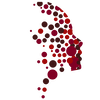There are many reasons why a feeding tube may be used. Although many patients may be reluctant to have a feeding tube, understanding the benefits of the tube, as well as the risks associated with not using a feeding tube, may help with this decision.
Post-Operative Recovery
In this practice, any extensive surgery impacting the mouth or throat will require the use of feeding tube for at least the post-operative recovery period. It is important the surgical wounds are not exposed to contamination by food/liquid during the recovery process, which may interfere with wound healing and even lead to infection.
Ongoing cancer treatment
This practice cares for a great deal of cancer patients, many of whom require chemotherapy and/or radiation during the course of their treatment. Adequate nutrition is key in promoting good endurance as well as healing. During the course of treatment, it may not be possible to take in sufficient nutrition/hydration by mouth. In these cases, the feeding tube can be helpful to adequately nourish and hydrate the patient.
Extensive Surgery
Although all surgeries involving the mouth and throat may require a period of post-operative recovery when a feeding tube is needed, more extensive surgeries that involve partial or complete removal of certain mouth/throat structures may require more long term use of a feeding tube. Certain structures are critical in allowing for a safe and effective swallow, without significant risk for aspiration, when food/liquid enter the trachea. Depending on the extent of the surgery, rehabilitation may be required before the patient can safely return to eating by mouth.
Dysphagia
This is a term used to describe a problem with the patient’s ability to safely and effectively eat/drink by mouth. Dysphagia can occur for a variety of reasons, although in this practice, it is typically the result of surgery and/or additional cancer treatment. The SLP staff is extensively trained in the field of dysphagia and apply the latest in rehabilitative methods to restore the ability to swallow as quickly as possible. However, depending on the severity of the dysphagia, a feeding tube may be required to ensure nutritional needs are safely met during rehabilitation.
Your doctor and SLP staff will determine when it is ok for you to return to eating by mouth.

